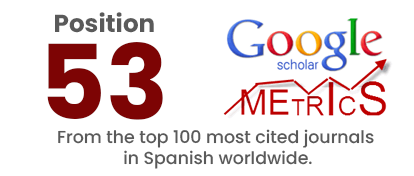Veracity as Basic Category of journalistic Discourse: Methodology of Interpretation
DOI:
https://doi.org/10.36097/rsan.v1i23.697Keywords:
veracity, objectivity, accuracy and completeness of information, social fact, social cognitionAbstract
The category of veracity, as well as objectivity, is declared to be the main principle in the theory and practice of journalism. The journalistic descriptions of categories have their own specificity as compared to philosophical considerations. The veracity of journalistic texts including the closely related categories of objectivity and accuracy are of great importance in contemporary research discourses. The object of the research is scientific concepts of veracity, objectivity, accuracy, facts, knowledge; we focus on their peculiarities and purpose in journalistic discourse. The article deals with approaches and ways of veracity interpretation in mass media. The specific features and purposes of veracity are analyzed. Attention is drawn to multi-dimensionality of the category which is revealed in journalistic texts in connection with informativity, accuracy, objectivity; indicators and criteria of veracity and accuracy in contemporary media texts. Researching of objectivity through sub-categories of informative value, accuracy and objectivity leads to the conclusion that it is more appropriate to take into consideration the interference between objectivity and subjectivity, accuracy and approximation, various types of information required for veracity evaluation.
Downloads
References
Arutyunova, N.D., 1995. Ot redaktora [Editorial Column]. Logicheskij analiz jazyka. Istina i istinnost’ v culture i jazyke. Moscow: Nauka: 3-7 (in Russian).
Bloor, D.,1991 . Knowledge and social imagery (2nd ed.). Chicago, Illinois: University of Chicago Press.
Couldry N., Hepp A., 2016. The mediated construction of reality. Polity Press, Cambridge, UK: 256.
Federalnyj zakon RF “O SMI” (2015) [1994] [Federal Law of Russian
Federation “On Law”]. http://docs.cntd.ru/document/9003299 (in Russian).
Filosofia: entsiklopedicheskij slovar’ [Philosophy: Encyclopedia] ,2004. Moscow: Gardariki, 1072 p.(in Russian).
Goldman, A., 2008. The social epistemology of blogging. In J. van den Hoven & J. Weckert (Eds.), Information technology and moral philosophy : 111–122. New York, NY: Cambridge University Press. URL: http://fas-philosophy.rutgers.edu/goldman
/Social%20Epistemology%20of%20Blogging.pdf
Ilyinova, E.Yu., 2012. O tochosti i tonalnosti predstavlenija sobytija v tekste novostej [On the Accuracy and Tonality of Event Representation in News Texts]. Diskurs kak socialnaja dejatelnost’: prioritety i perspektivy. Ch. 1. In: Vestnik Moskovskogo lingvisticheskogo universiteta, 5 (638):162-172 (in Russian).
Ivin, A.A., Nikifiriv, A.L., 1997. Slovar’ po logike [Dictionary of Logic] Moscow: Vlados : 384 (in Russian).
Jakovleva, E.S.,1994. Fragmenty russkoj jazykovoj kartiny mira [Fragments of Russian Language Worldview]. Moscow: Gnosis, 344 p.(in Russian).
Korkonsenko, S.G., 2004. Osnovy zhurnalistiki [Introduction to Journalism]. Moscow: AspektPress, 287 p. (in Russian).
Kozhemyakin, E.A., 2011. Objektivnost’ kak filosofskaja kategorija v zhurnalistskom diskurse [Objectivity as a Philosophical Category in Journalistic Discourse]. Nauchnije vedomosti Belgorodskogo gosudarstvennogo universiteta. Seria: Gumanitarmije nauki, 18 (113), Iss.11: 187-194 (in Russian).
Kuraev, V.I.,2009. Tochnost’ [Accuracy] . Enciklopedia epistemologii i filosofii nauki. Moscow: Kanon+, Reabilitatsia, 990 p. (in Russian).
Lazutina, G.V.,2004. Osnovy tvorcheskoj dejatelnosti zhurnalista [Introduction to Creative Activity of Journalists]. Moscow: AspektPress, 240 p. (in Russian).
Lektorskij, V.A., 2009. Realizm, anti-realizm, konstruktivizm i konstruktivnyj realism v sovremennoj epistemologii i naukah o cheloveke [Realism, Anti-Realism and Constructive Realism in Contemporary Epistemology and Humanities]. Konstruktivnyj podhod v epistemologii i naukah o cheloveke. Moscow: Kanon+:4-40 (in Russian).
Lektorskij, V.A., 2012. Transformatsija epistemologii: novaja zhizn’ starykh problem [Transformation of Epistemology: New Life of Old Issues].
Epistemologija: perspektivy razvitija. Moscow: Kanon+, Reabilitatsia: 5-47 (in Russian).
Lozovskij, B.N., 2004. Zhurnalistika: kratkij slovar’ [Journalism: Brief Dictionary]. Ekaterinburg: Izd. Ural. Un., 116 p. (in Russian).
Melnikova, E.A., 2014. Tochnost’ i dostovernost’ kak kriterii informativnosti teksta novostnogo soobschenija [Accuracy and Veracity as Criteria for Informativeness of News Texts]. Vestnik Volgogradskogo gosudarstvennogo universiteta. Serija: Filologija. Zhurnalistika, 5: 94-100 (in Russian).
Olyanich, A.V., 2007. Prezentatsionnaja teorija diskursa [Presentational Theory of Discourse]. Moscow: Gnosis, 407p. (in Russian).
Panchenko, N.N., 2010. Dostovernost’ kak kommunikativnaja kategorija [Veracity as a Communicative Category]. Volgograd; Peremena, 323 p. (in Russian).
Prokhorov, E.P., 2012. Vvedenije v teriju zhurnalistiki [Introduction to Journalism Theory]. Moscow: AspektPress, 351 p. (in Russian).
Pronin, E.P., 1980. Vyrazitelnije sredstva zhurnalistiki [Expressive Means of Journalism]. Moscow: MGU, 92 p. (in Russian).
Sarafannikova, E.V., 2006. Diskursivnije markery sootnesenija soobschaemogo s dejsctvitelnostju (na materale televisionnykh novostej na russkom i anglijskom jazykakh) [Discursive Markers of Correspondence of the Message with the Reality (on the Examples of Russian and English Language TV News)]. Voronezh, 20 p. (in Russian).
Sotsiologija zhurnalistiki [Sociology of Journalism], 2014. Moscow: Jurajt, 421 p. (in Russian).
Stilisticheskij Entsiklopedicheskij Slovar Russkogo Jazyka [Stylistic Encyclopedia of Russian Language] , 2006. Moscow: Flinta, 696 p.(in Russian).
Svitich, L.G., 2003. Professija zhurnalist [Profession of journalist]. Moscow: AspektPress, 255 p. (in Russian).
Tertychnyj, A.A., 2011. Zhanry periodicheskoj pechati [Genres of Periodical Print Media]. Moscow: AspektPress, 320 p. (in Russian).


















